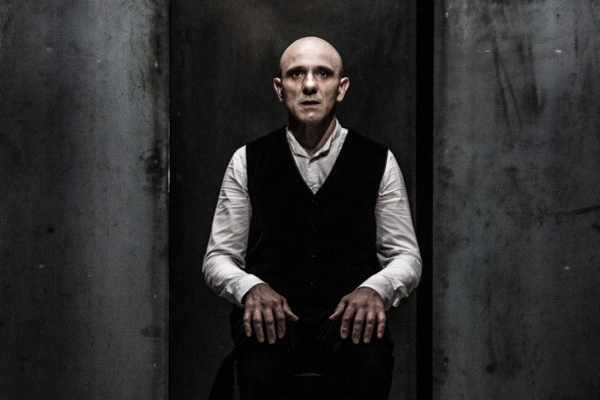
Macbettu MITEM
‘When the supernatural enters a being which does not have enough love to receive it, it turns into evil. This is the lesson: ambition is limitless, while real possibilities never are; in crossing them, one falls.’ Simone Weil
Shakespeare’s Macbeth, performed in Sardinian and, in the pure Elizabethan tradition, by an all-male cast. The idea originated during Serra’s photographic coverage of the carnivals in Sardinia’s Barbagia region. The gloomy sounds of cowbells and ancient instruments, the animal skins, the horns, the cork. The power of the gestures and of the voice, the kinship to Dionysius and, at the same time, the incredible formal precision of the dances and chants. The sullen masks, and the blood, the red wine, the forces of nature tamed by man. But most of all the dark winter. A surprising number of analogies between the Shakespearian masterpiece and the variety of masks found in Sardinia. The Sardinian language does not limit its fruition, but instead turns into song that which in Italian would be at risk of degrading into literature. An empty stage space, crossed by the bodies of the actors who draw locations and evoke presences. Stones, dirt, iron, blood, warrior stances, residues of ancient civilizations from the Nuraghe of Sardinia. Matter which doesn’t convey meaning, but primordial forces which act upon those who receive them.

